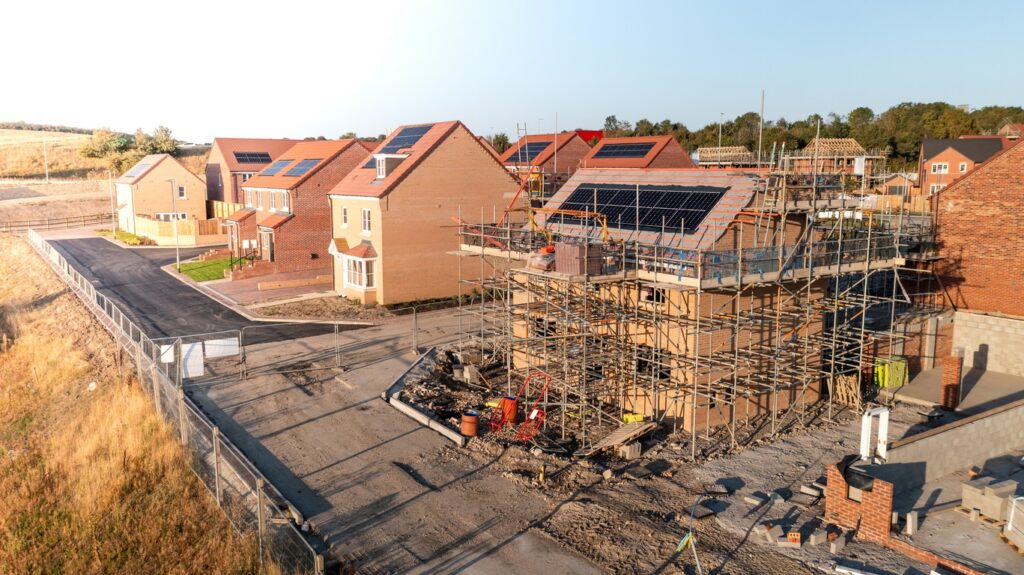
The Planning and Infrastructure Bill was introduced to Parliament on 11 March 2025 which the government promises will unleash “seismic reforms” to enable homes and vital infrastructure to be delivered quicker to support the key mission of kickstarting economic growth. Deputy Prime Minster and Secretary of State for Housing, Angela Rayner said: “We’re creating the biggest building boom in a generation – as a major step forward in getting Britain building again and unleashing economic growth in every corner of the country, by lifting the bureaucratic burden which has been holding back developments for too long”. The Government expects the Bill to be instrumental in delivering reforms at the heart of their Plan for Change and will support the milestones of achieving higher living standards in every part of the UK, building 1.5 million homes and fast-tracking 150 planning decisions on major economic infrastructure projects over the course of the current Parliament. It will also support the mission of making Britain a clean energy superpower.
SO, WHAT ARE THE KEY MEASURES?
Planning Committees
The Bill will introduce a national scheme of delegation through Regulations that will set out which planning functions will be delegated to planning officers and which should be determined by a planning committee with new controls over the size and composition of planning committees to support effective debate and avoid large committees. Mandatory training will also be required for committee members before they can take planning decisions and LPAs would be able to set their own planning fees. This is aimed at ensuring that there is greater consistency and certainty in planning decisions across the country.
Nature Restoration Fund
A Nature Restoration Fund will be created to help developers meet their environmental obligations relating to protected sites and species faster and at a greater scale without holding up development. Contributions will be pooled to secure the environmental improvements needed. This will be delivered through the creation of Environmental Delivery Plans (“EDPs”) by Natural England. Where an EDP is in place and a developer utilises it, the developer would no longer need to undertake their own assessments or deliver project-specific interventions for issues covered by the EDP.
Compulsory Purchase Reform
Councils and other relevant bodies will be able to buy vacant land more cheaply from landowners without having to pay “hope value” costs, namely, what the land could be worth if developed in the future, provided that the development is in the public interest. Other changes include allowing decisions on CPOs to be confirmed by inspectors, councils and mayors and if there is an agreement with the landlord and no objection, by the acquiring authority itself, as currently these must be agreed by the Secretary of State which is a lengthy process. These reforms are aimed at driving forward housing, vital infrastructure and local regeneration to boost economic growth.
Development Corporations
Development Corporations will be given enhanced powers and greater flexibility in relation to the variety, extent and types of geographical areas over which they can operate and the types of infrastructure corporations can provide will be updated and standarised. The Bill will also ensure that due regard is given to sustainable development and climate change mitigation and adaption. This will make it easier to deliver large-scale development such as the Government’s proposed new towns, the proposed 1.5 million new homes along with the required infrastructure. Collaboration between Development Corporations and local transport authorities will be secured through a new duty to cooperate to ensure that new towns integrate seamlessly into the wider spatial plan for the area. Where appropriate, Development Corporations will be able to exercise transport planning functions to achieve this goal.
Strategic Planning
A strategic planning system will be introduced which will require spatial development strategies to be produced by mayors or local authorities to help boost growth by looking across multiple local planning authorities for the most sustainable areas to build. This is aimed at ensuring development needs and infrastructure requirements are joined up.
National Significant Infrastructure Projects (NSIPs)
The NSIP regime will be streamlined to make it more efficient and will ensure that the national policies against which infrastructure applications are assessed are updated at least every 5 years to reflect legislative changes, relevant published government policy or recent court decisions. Changes will also be made to the Highways Act and the Transport and Works Act to reduce bureaucracy so that transport infrastructure can be delivered quicker. The paper permission stage for judicial review challenges to major infrastructure decisions such as National Policy Statements and Development Consent Orders will be removed and cases which are deemed totally without merit will be allowed one attempt at legal challenge rather than the previous three.
Clean Energy
Clean energy projects that help achieve clean power by 2030 such as wind and solar power will be prioritised for grid connections through a “first ready, first connected’ system” instead of the current “first come, first served” approach. This is aimed at unlocking growth with £200 billion of investment and protecting householders from escalating energy bills. Reforming the grid queue will also accelerate connections for industrial sites and data centres. The process to install EV charging infrastructure will also be streamlined to support the government’s net zero ambitions.
Bill Discounts and Community Benefits relating to Energy Infrastructure
People living within 500 meters of new pylons across Great Britain will get up to £2500 off their electricity bills over 10 years. New guidance will also set out how developers should ensure communities hosting transmission infrastructure can benefit by funding community projects and facilities. Communities could secure £200,000 worth of funding per km of overhead electricity cable in their area and £530,000 per substation.
IS THIS ENOUGH?
Whilst the Bill is serious about improving economic growth by getting Britain building again through a joined-up approach to housing and infrastructure delivery, it is silent so far on unlocking development on sites which have already secured planning permission but remain undeveloped. Land banking is a serious problem across the country where thousands of sites with planning permission remain undeveloped and empty following the initial spade in the ground to keep a permission alive. More needs to be done to incentivise developers to build the schemes they have often fought hard to secure consent for either through financial incentives, perhaps CIL discounts or relaxing Section 106 requirements to help developers build more viable and sustainable communities where people will want to live.
This update is for general purpose and guidance only and does not constitute legal advice. Specific legal advice should be taken before acting on any of the topics covered. No part of this update may be used, reproduced, stored or transmitted in any form, or by any means without the prior permission of Brecher LLP.




